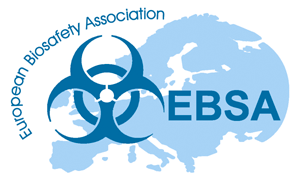Past EBSA courses
-
18 June 2013
EBSA16 - Course I. Biological waste management - doing it right?
Read moreBiological waste originates from human or animal health care, medical and biotech research, laboratories, greenhouses and other facilities. Careful disposal of this type of waste is an integral component of the organization's biorisk management.
-
18 June 2013
EBSA16 - Course H. Biosafety in animal facilities - the challenge
Read moreSmall animal biosafety: sourcing and selection of animals, containment of small animals, their safe manipulation (handling, inoculation, force feeding, etc.), different experimental systems (infectious organisms, viral vectors, etc).
-
18 June 2013
EBSA16 - Course G. Biological materials - known and unknown hazards
Read moreHave you ever been in a situation where you had to deal with biological material and had no clue what kind of pathogens it might contain? Have you wondered whether these specimens were containing higher risk group agents than group 1 or 2. Have you wondered how to keep yourself and your colleagues safe when dealing with these specimens whether in research or diagnostics, specifically when it came to processing large numbers of samples ?
-
18 June 2013
EBSA16 - Course F. Safe and Secure -Introduction to Practical Issues of Biosecurity
Read moreThis short course will introduce the issues and practical approaches to developing and influencing an effective biosecurity programme.
The course will introduce delegates to the issues required to develop an effective biosecurity programme at the institute level. The course includes practical and theoretical aspects to adopt and to determine risk.
-
18 June 2013
EBSA16 - Course E. Training should be fun - techniques and pitfalls
Read moreThis course is intended for all biosafety professionals involved in training, setting up training programs, choosing training methods and tools, evaluation, assessment and particularly for those, giving training.
-
18 June 2013
EBSA16 - Course D. Fundamentals of laboratory decontamination
Read moreLearning outcomes from this course:
• Describe the differences in sterilisation, disinfection and decontamination
• Pros and cons of different chemical disinfectants
• Evaluate disinfection options and applications
-
17 June 2013
EBSA16 - Course C. BSL3 hands-on
Read moreThis two day course will introduce participants to the basics of working safely in a BSL3 laboratory. The course content was adapted from the BSL3 biosafety course of the Swiss Biosafety Curriculum. Participants will perform risk assessments, learn more about BSL3 design and engineering, get introduced to BSL3 specific PPE and use it, cover aspects of waste management and room fumigation, exercise using safety equipment under BSL3 conditions and go through different emergency scenarios amongst other things. The focus of the course lies clearly on practical exercises which limits the number of people who may attend to 8. This is a very intense course that will ask a lot from participants.
-
17 June 2013
EBSA16 - Course B. Emergency preparedness and response & incident and accident investigation
Read moreFrom minor lab mishaps to large accidents, biosafety professionals have a pivotal role in minimizing unwanted effects of biological agents when normal biosafety or biosecurity operational controls fail.
The course introduces participants to emergency management and its key components (preparedness, response, contingency, crisis management, recovery and investigation). Assessment of credible emergency scenarios and integration of bio-risks in emergency plans should enable an organization to prepare (actors, infrastructure & equipment, procedures, business continuity and communication) for a reasonable response proportionate to the scale and nature of the emergency. Effective testing, communication and training approaches, including emergency exercises and simulations, will be discussed.
-
17 June 2013
EBSA16 - Course A. Auditing: a comprehensive and practical introduction
Read moreThis two day practical course provides a comprehensive and sound practical introduction to auditing. The course takes participants through the principles, recognized best practices and essential techniques of (HSE / biosafety) auditing. It provides them with guidance on planning and performing of an audit in line with international standards. The course will combine elements previously covered in the one day EBSA pre-conference courses "Biosafety audits and inspections - a basic course" and "Auditing - beyond the basics". Newly introduced feature will include the opportunity for delegates to take part in a "mock audit" of a laboratory facility.
